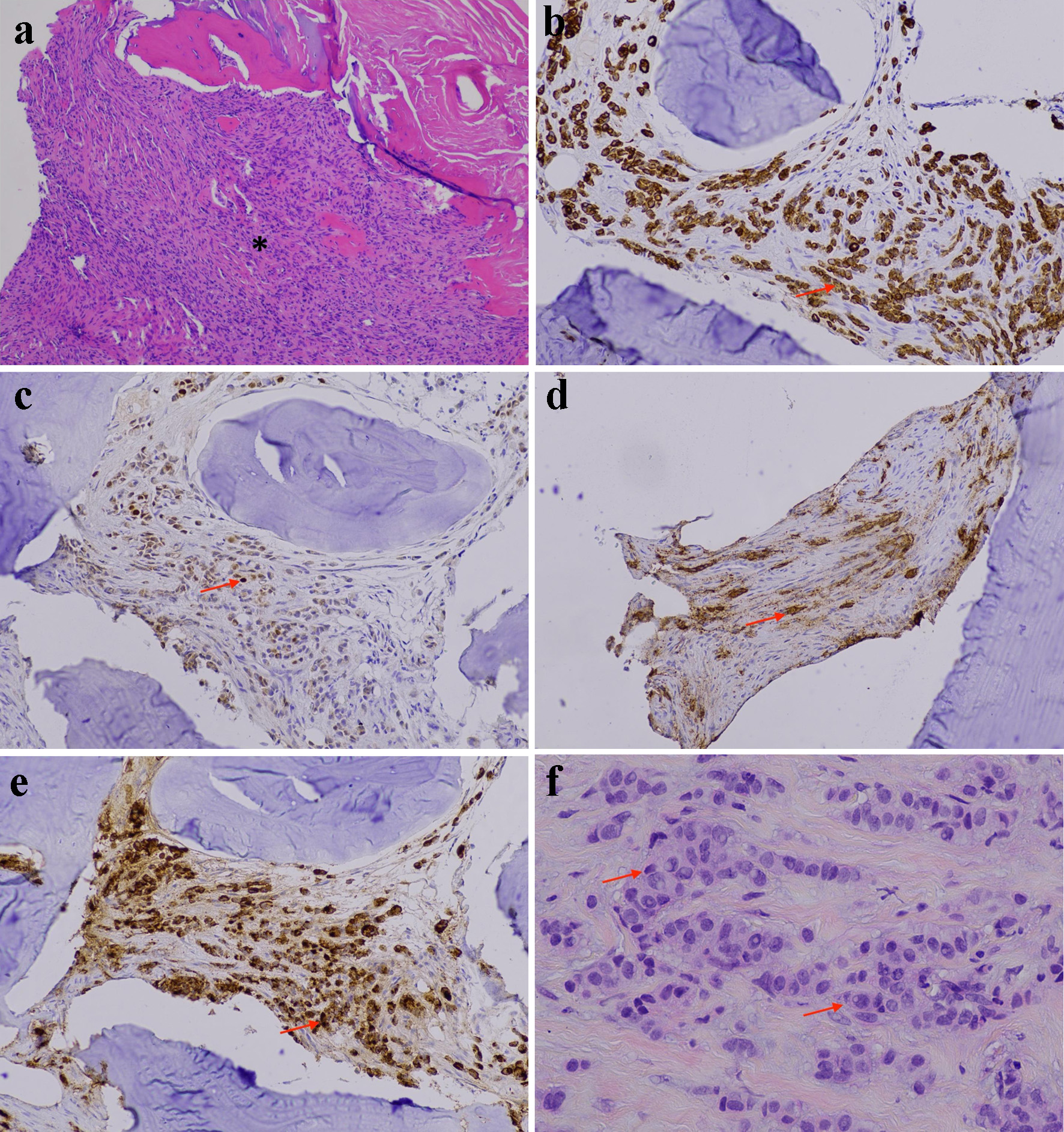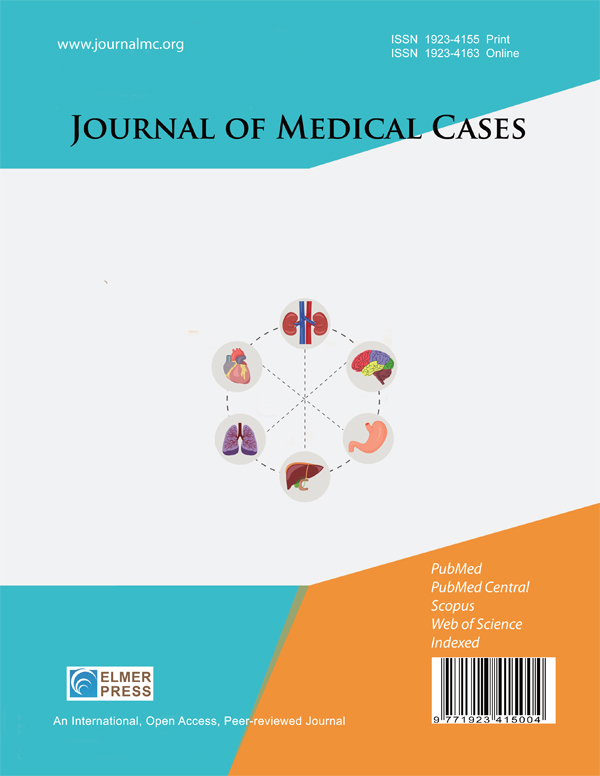Acute Hepatitis in a Patient Treated With Ribociclib for Metastatic Breast Carcinoma
DOI:
https://doi.org/10.14740/jmc5163Keywords:
Ribociclib, Drug-induced liver injury, Hepatotoxicity, Cyclin-dependent kinase 4 and 6 inhibitors, Breast neoplasms, Lobular carcinoma, N-acetylcysteine, Liver biopsyAbstract
Ribociclib, a cyclin-dependent kinase 4/6 (CDK4/6) inhibitor, is widely used in the treatment of hormone receptor-positive (HR+), human epidermal growth factor receptor 2 (HER2)-negative metastatic breast cancer. Although hepatotoxicity is a recognized adverse effect, severe cases of ribociclib-induced liver injury with histologic confirmation of submassive hepatic necrosis remain rare. We describe a case of a postmenopausal woman with newly diagnosed stage IV HR+/HER2-negative invasive lobular carcinoma who developed acute hepatocellular injury 8 weeks after initiating ribociclib and anastrozole. The patient presented with fatigue, jaundice, and dark urine, and was found to have markedly elevated transaminases (alanine aminotransferase 1,825 U/L; aspartate aminotransferase 1,536 U/L) and hyperbilirubinemia. A thorough workup excluded viral, autoimmune, and obstructive hepatobiliary causes. Liver biopsy demonstrated confluent centrilobular necrosis without fibrosis or significant inflammation. Causality assessments yielded an R-factor of 20.73, a Roussel Uclaf Causality Assessment Method score of 10 (highly probable), and a Naranjo score of 7 (probable). Ribociclib was discontinued and intravenous N-acetylcysteine (NAC) initiated, leading to gradual normalization of liver enzymes. The patient was maintained on anastrozole alone, with no recurrence of liver injury and stable disease at 13-month follow-up. This case highlights the potential for ribociclib to induce severe hepatocellular injury with histologic evidence of submassive necrosis. Early recognition and structured causality assessment ensures patient safety. In patients with significant hepatotoxicity, discontinuation of ribociclib and non-rechallenge may be prudent. Furthermore, consideration of NAC in management is important in cases demonstrating persistent transaminitis despite ribociclib discontinuation.

Published
Issue
Section
License
Copyright (c) 2025 The authors

This work is licensed under a Creative Commons Attribution-NonCommercial 4.0 International License.









